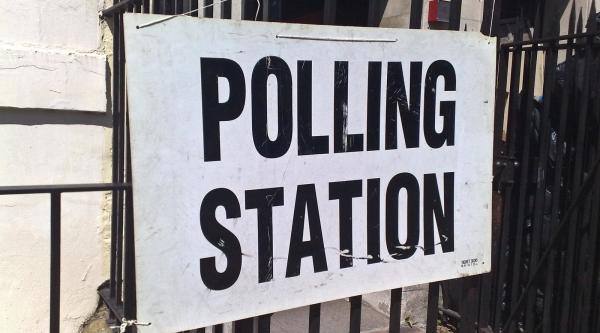Lasting power of attorney for people with dementia
A Lasting power of attorney (LPA) is a legal tool that lets you choose someone you trust to make decisions for you. LPAs can make things easier for you and the people you are close to as your dementia progresses.
Lasting power of attorney
- You are here: Lasting power of attorney for people with dementia
- Who can I choose to be my attorney?
- How do I make a Lasting power of attorney?
What is a Lasting power of attorney?
When you have dementia, it’s likely you will reach a point where you will struggle to make some decisions for yourself. This is known as lacking ‘mental capacity’ to make those decisions. When this happens, someone else will need to make those decisions for you. Often this will be a carer or family member.
A Lasting power of attorney (LPA) lets you choose someone (or several people) you trust to make decisions for you when you’ll need them to. This person is referred to as your ‘attorney’, and you can choose what decisions they can make for you.
Dementia is progressive, so it will become more difficult for you to make plans and decisions over time. It is therefore a good idea to start thinking about making an LPA as soon as you can, while you have ‘mental capacity’ and understand what an LPA is and how it works.
Do you live in Northern Ireland?
In Northern Ireland, the laws around powers of attorney are different. So if you live in Northern Ireland, please read our information about Enduring power of attorney and controllership.
There are two different types of LPA:
- Property and affairs LPA – this lets the person you appoint make decisions about your property and finances.
- Health and welfare LPA – this lets the person you appoint make decisions about your care and medical treatment
You can choose to make both types or just one. You can appoint the same person to be your attorney for both, or you can have different attorneys.
Talking about LPAs with your family or close friends can be a good way to think about what you want for the future. It will also help them to know and understand your wishes and preferences.
Watch our video to see how making a Lasting power of attorney helped Diana and her husband Eugene, who was living with dementia:
The benefits of making a Lasting power of attorney
Making an LPA now will make things easier for the people close to you in the future. It will be more expensive, difficult and time-consuming for them to get permission to act on your behalf when you are not able to give your consent.
With a property and financial affairs LPA, you can allow your attorney to make decisions – even if you can still make them yourself. You don’t have to choose this option, but it can be a useful way of giving yourself some extra support. It can also help your attorney get familiar with all your financial and legal arrangements.
Making an LPA can start discussions with your family or others about what you want to happen. This means decisions they have to make in the future will be based on your wishes.
Other powers of attorney
What happens if you don’t make an LPA?
If you don’t make an LPA and later become unable to make certain decisions for yourself, there may be no one who can legally make those decisions for you. This can make things difficult and very drawn-out, particularly with paying bills such as care costs. Someone has to have been given a legal power to access your money.
If there’s no LPA in place, someone may need to apply to become your ‘deputy’ through the Court of Protection. This gives them similar powers to an attorney. A family member or friend can apply to be your deputy, or a professional may be appointed.
The process of becoming a deputy is more time-consuming and expensive than an LPA. Plus, the deputy is chosen by the court, not by you. A deputy must also do some other tasks, such as paying an annual fee and submitting an annual report. This means it is usually cheaper and easier for someone to be an attorney, rather than a deputy.
It’s also unusual for a deputy to be appointed to deal with decisions about your health and welfare. A deputy is normally only appointed to deal with your property and finances. Health or social care professionals will normally make care and treatment decisions for you if you cannot make them yourself and you don’t have either:
- a health and welfare LPA
- an advance decision to refuse treatment that applies.
The professionals would make final decisions based on what is in your ‘best interests’. However, they would still need to consider your past and present wishes and feelings (including any you have written down). They should also consult with those close to you.







What is a property and affairs LPA?
A property and financial affairs LPA covers decisions about your finances and property. If there comes a time when you can’t manage your finances anymore, the person you appoint as your attorney will do this for you.
This can include:
However, if you want to, you can limit the decisions the attorney can make, or when they can make them.
There are two different options for property and financial affairs LPAs. You must select one of these on the form. These two options are:
What is a health and welfare LPA?
A health and welfare LPA allows your attorney to make decisions on your behalf about your health and care. This is when you are unable to make these decisions for yourself. They could make decisions about:
You can also choose to give your health and welfare attorney the power to accept or refuse life-sustaining treatment on your behalf. This is a very significant responsibility. Take time to discuss this with the person you’ve chosen as your attorney.
You may have already refused certain future treatments in an advance decision to refuse treatment, before making a health and welfare LPA. If so, you need to think about how the advance decision and the LPA will work together. You may need to take legal advice if you are concerned about any confusion between your advance decision and your LPA
What is an enduring power of attorney?
Enduring powers of attorney (EPAs) were in place before Lasting powers of attorney (LPAs). EPAs only cover decisions about finances and property (like the property and financial affairs LPA). They do not cover health and welfare decisions.
It’s no longer possible to make a new EPA. However, if you made one before 1 October 2007 it can still be used (as long as it was correctly filled in).
If you already have an EPA, you might also want to think about making a health and welfare LPA to cover decisions about your care and medical treatment.
What are general or ordinary powers of attorney?
These can give someone permission to manage your property and finances (not health and welfare) on your behalf. But unlike an LPA or EPA, these cannot be used if you become unable to make decisions yourself about your property or finances in the future.
They might be used, for example, if you are going abroad for some time and want someone to look after things while you are away.
When you have dementia, an LPA is a better option. It allows your attorney to make or continue to make certain decisions for you if you cannot make them yourself.